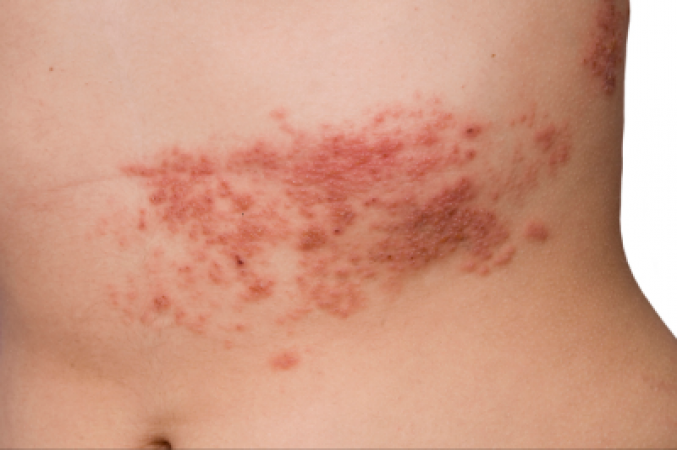
Skin rashes can often be dismissed as trivial inconveniences, but ignoring them could lead to serious consequences. Understanding the significance of skin rashes and knowing when to seek medical attention can make a vital difference in your overall health and well-being. Let's delve into why you should pay attention to skin rashes and what they might signify.
Skin rashes come in various forms, each indicating different underlying causes. These manifestations can range from red patches to itchy bumps or blisters. It is essential to recognize and understand these variations to determine the appropriate course of action. Here's a closer look at some common types of skin rashes:
Allergic dermatitis occurs when the skin comes into contact with allergens, triggering an immune response. Common allergens include certain plants, chemicals, or metals. Symptoms may include redness, itching, and swelling at the site of contact. Identifying and avoiding these allergens is crucial to managing allergic dermatitis.
Eczema, also known as atopic dermatitis, is a chronic inflammatory skin condition characterized by inflamed, itchy skin. It often occurs in individuals with a family history of allergies or asthma. Eczema can flare up due to various triggers, including stress, irritants, or allergens. Proper skincare and lifestyle modifications can help manage eczema symptoms effectively.
Psoriasis is a chronic autoimmune condition that causes red, scaly patches to develop on the skin's surface. These patches, known as plaques, can be itchy and painful, leading to discomfort and self-consciousness. Psoriasis flare-ups may occur due to factors such as stress, infections, or certain medications. Treatment aims to reduce inflammation, alleviate symptoms, and prevent flare-ups.
Heat rash, also known as prickly heat, develops when sweat becomes trapped in blocked sweat ducts, leading to inflammation and irritation of the skin. This condition is common in hot, humid climates or during periods of excessive sweating. Heat rash typically presents as small, red bumps or blisters and can cause itching and discomfort. Keeping the skin cool and dry can help prevent heat rash.
Fungal infections of the skin, such as ringworm or athlete's foot, are caused by fungi that thrive in warm, moist environments. These infections often present as red, itchy patches with raised borders and may spread rapidly if left untreated. Fungal infections can be contagious and may require antifungal medications for effective treatment.
Certain viral infections can cause characteristic rashes to develop on the skin. Examples include measles, chickenpox, and herpes. These viral rashes typically present with specific patterns and may be accompanied by other symptoms such as fever, sore throat, or fatigue. Early detection and appropriate treatment of the underlying viral infection are essential to managing viral rashes effectively.
While some skin rashes may resolve on their own or with home remedies, ignoring them can have serious consequences. Here are some reasons why ignoring skin rashes is risky:
Skin rashes can be early indicators of underlying health conditions, including autoimmune disorders, infections, or systemic illnesses. Ignoring persistent or recurrent rashes may delay the diagnosis and treatment of these underlying conditions, allowing them to progress unchecked.
Untreated rashes, especially those caused by bacteria or fungi, can worsen and spread to other parts of the body. This can lead to complications such as cellulitis, abscess formation, or systemic fungal infections. Prompt treatment is essential to prevent the spread of infection and minimize the risk of complications.
Severe or untreated rashes may lead to complications such as skin infections, scarring, or even systemic infections. Chronic inflammation associated with certain skin conditions like psoriasis or eczema can increase the risk of developing other health problems such as cardiovascular disease or depression.
Ignoring skin rashes can delay the diagnosis and treatment of underlying health conditions, resulting in unnecessary suffering and potentially serious consequences. Early intervention is key to preventing the progression of these conditions and improving outcomes for affected individuals.
While many skin rashes can be managed with self-care measures or over-the-counter remedies, certain signs warrant prompt medical evaluation. Here's when you should seek medical attention for a skin rash:
If the rash spreads quickly or covers large areas of the body, it may indicate a more serious underlying condition requiring medical attention.
Skin rashes accompanied by severe symptoms such as fever, intense pain, swelling, or difficulty breathing should be evaluated by a healthcare professional immediately.
Blisters that are oozing, painful, or accompanied by fever may indicate a more serious skin infection or allergic reaction requiring medical treatment.
Rashes that persist or recur despite self-care measures may require medical evaluation to identify and address the underlying cause.
Skin rashes accompanied by other symptoms such as joint pain, fatigue, or unexplained weight loss should be evaluated by a healthcare professional to rule out underlying systemic conditions.
If you notice a skin rash, here are some steps you can take to address it:
Maintain good hygiene practices by regularly washing the affected area with mild soap and water. Applying moisturizers or emollients can help soothe dry, irritated skin and prevent further inflammation.
Identify and avoid triggers that may exacerbate your skin rash, such as allergens, irritants, or certain foods. Keeping a journal can help you track potential triggers and avoid them in the future.
If you're uncertain about the cause or severity of your skin rash, or if it fails to improve with self-care measures, seek medical advice promptly. A healthcare professional can evaluate your rash, provide an accurate diagnosis, and recommend appropriate treatment options. Skin rashes should never be ignored or dismissed as insignificant. They often serve as visible indicators of underlying health conditions, necessitating attention and, in some cases, medical intervention. By recognizing the signs of skin rashes, understanding their potential causes, and knowing when to seek medical attention, you can take proactive steps to safeguard your health and well-being in the long run.
Kangana Ranaut Steps into Politics: A New Chapter Begins
Alia Bhatt to Host Inaugural 'Hope Gala' in London: A Night of Charity and Glamour
Taapsee Pannu Ties the Knot with Mathias Boe in Intimate Udaipur Wedding